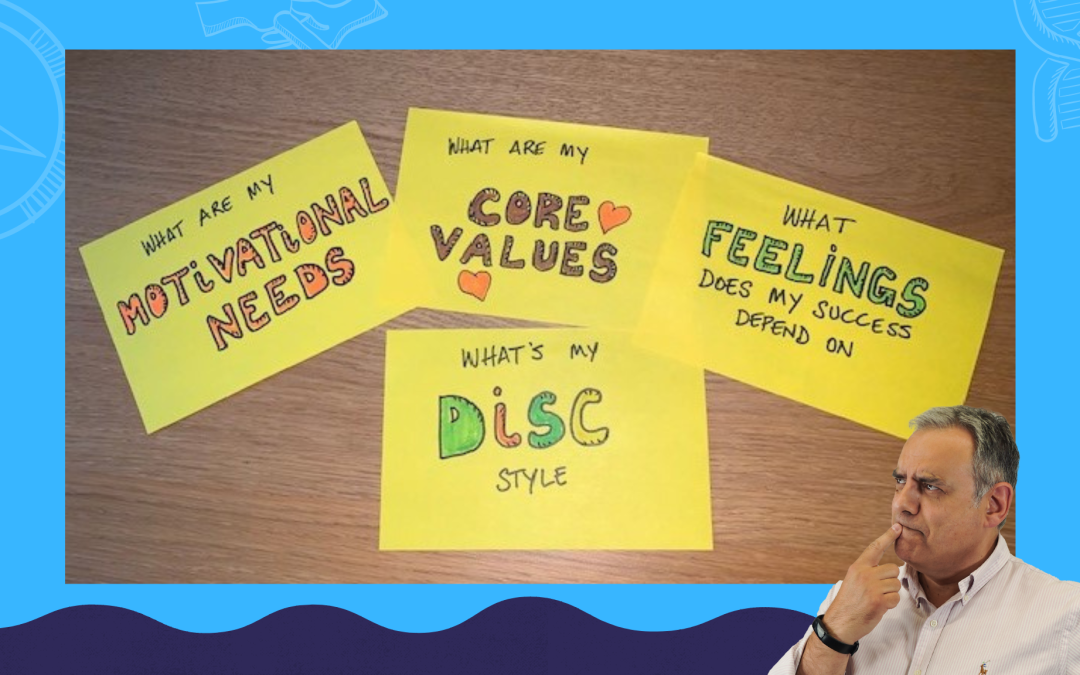I believe it takes courage to be an authentic leader.
I first came across this idea of courage in leadership in Kevin Cashman’s book ‘Leadership from the Inside Out’ years ago.
It’s a brilliant idea. Courage being the foundation of authentic leadership. The courage to be authentic to ourselves, to be vulnerable, risk being judged (and maybe even rejected); the courage to stand up for what we believe and to have our minds changed, to do the right thing, to explore new and different things; the courage to risk our own image and comfort, to go first and create a safe environment for others and the courage to change and be changed.
It’s for this reason that very often I advocate that transformational leadership programmes should have as self-mastery component as a starting point. Self-mastery is knowing who you are way beyond the obvious. It’s about getting to grips with what makes you tick; what drives the way one shows up at work (or anywhere else for that matter).
“For leadership development programmes to be meaningful and lasting in influence, they must be designed to develop the whole person . . .” Andreas Guenther, Head of Global HR, Bayer HealthCare AG
This is not to say that we are going to have deep psychological counselling or therapy sessions, but it is perhaps about exploring our values, understanding our personal style and motivational needs and articulating the feelings that we would like to experience most of the time at work. To master ourselves means to master our values, our motives, our feelings and our behaviours.
So I believe the most important way to improve our leadership capacity is to master ourselves first. As Cashman puts it. It’s a bit like understanding our owner’s manual. With it, we get to answer a fundamental question: “Who are you?”
If self-mastery is, as I believe, a sort of secret sauce that makes a major difference to our personal recipe of authentic leadership, then it’s a ‘must-have’ in transformational leadership programmes.
So how do you get to find out about yourself?
So the next question that arises is how can we go about exploring personal mastery in leadership programmes?
There are probably several ways we can tackle that question, but there are four tools I particularly like to integrate into leadership development programmes that really help with the “Who are you” question.
The first tool I’d like to share comes from psychologist David McClelland who proposed a theory of motivational needs, building further on Abraham Maslow’s hierarchy of needs which is well known and often used in leadership development interventions.
McClelland posited that every person, irrespective of gender or culture, has three main driving motivational needs; the needs for achievement, affiliation, or power, which we develop through our culture and life experiences. His theory asserts that individuals possess these needs to varying degrees, influencing their behaviour and performance. The chances are that one of the needs is stronger than the other two.
I use a card sort or questionnaire that enables leaders firstly to identify their own primary motivational needs. We explore how these motivational needs are satisfied at work and the implications when they are not. Incorporating McClelland’s theory into leadership workshops generates conversations that are rich and insightful as individuals gain greater understanding and awareness of the impact of these motivational needs and how they influence their individual leadership behaviours. It provides a nuanced understanding of their natural inclinations and enables them to be cognisant of how resulting behaviours impact on others.
What are my core values?
Another tool I often use is a values clarification exercise. Again, by using a card sort or questionnaire participants sift through a number of value statements until they get to a point where they have identified their top five core values.
Everyone has different core values, that have been developed and influenced both by everything that’s happened in their lives, as well as their own individual personalities.
Core values act as a bedrock and influence our decisions and actions like doing the right thing, or the importance of reputation or family. The process of identifying our core values involves self-reflection and introspection, enabling leaders to gain clarity on what matters most to them. Integrating a values clarification tool into leadership development allows participants to consider if their leadership style aligns with their authentic selves.
Sometimes it can be a wake-up call when they realise that the way they have been working to date or what they have been focusing on at work isn’t congruent with their core values.
Once individuals have clarified their top five core values I then run a series of mini exercises exploring their meaning, their fulfillment, their expression and their congruence. It’s like peeling away the layers of an onion, getting to the centre and finding real insight and understanding. Participants get to appreciate more how their core values influence how they feel at work, about work and their leadership.
Core values act as a bedrock and influence our decisions and actions
Which leads me to a question that is seldom if ever asked at work.
What feelings does your success depend on?’
If you are anything like me, it’s a question that’s never been asked of you. And yet it’s a really thought provoking question in a transformational leadership development context. Emotions matter. We underestimate the significance of emotions and how central they are to the climate we want to create with our work teams.
Positive feelings influence so many things: connections and a sense of belonging, motivation and engagement and satisfaction with work. They are also associated with quality, overall performance and productivity. Behavioural scientists have shown that emotions drive our thinking and our behaviour.
Going back to our central theme of self-mastery, being able to identify the most important emotions that drive the best version of ourselves is a significant personal insight and development.
Exploring feelings
The tool I like to use to explore this is the Emotional Culture Deck. It’s such a simple, but powerful tool. I run a series of exercises a little like the values solicitation, but exploring more deeply practices and actions that are considered likely to generate the feelings perceived to bring out our best versions.
Take our ‘Leading Team Emotional Culture’ quiz
The Emotional Culture Deck tool is one of my favourites because participants gain huge insights about their desired feelings at work. They gain perspectives and understanding of self through the exploration of their feelings in ways that are mostly completely new to them. Very often participants then want to explore the emotional climate of their teams.
“People will forget what you said, people will forget what you did, but people will never forget how you made them feel.” Dr. Maya Angelou, author and civil rights activist.
All these tools start to build personal awareness at a much deeper level. Like exploring an iceberg at its deepest reaches, participants gain surprising insights about their personal drivers of values, motives and emotions that sit below the surface of their typical behaviours. The tools described above then enable a much better understanding of personal style as expressed through behaviour.
How to discover personal style
To explore their typical behaviours, or personal style, I like to use a tool like DISC. DISC stands for Dominance, Influence, Steadiness and Conscientiousness. At it’s heart is an assessment tool based on a behavioural model that provides a description of overarching observable behavioural style based on two dimensions.
One dimension looks at the extent to which someone is active; faster-paced, assertive, dynamic, bold and tell-directed versus thoughtful; moderately paced, calm, methodical, careful and ask-directed. The other dimension looks at the extent to which someone is questioning; logical, objective, challenging and task focused versus accepting; receptive, agreeable, empathising and people focused.
The combination of these two dimensions gives us a description of our overarching behavioural style. The value here is about having a greater appreciation about how their personal style might be perceived by others. Armed with an understanding of the DISC behavioural model, leaders can carve out more adaptable approaches dependent on the people they need to work with and the situations they encounter. They are better able to build more satisfying and successful relationships and overall enhance their leadership qualities.
Experience tells me that integration of these four tools in any leadership development intervention goes a long way in enabling participants to get to grips with what makes them tick as a person. Of course, there are many other tools out there that help individuals to move towards self-mastery. My point is that this first step makes a big difference in then developing the approaches and competencies for transformational leadership. McClelland’s motivational theory, values solicitation, the Emotional Culture Deck and DISC in combination creates a reasonably far reaching framework at the heart of leadership development that is resonant and insightful for participants.
Well designed transformational leadership programmes using these tools can cultivate self-mastery and ultimately leaders who are more attuned to their own motivations, values, feelings and personal style, and more sensitive and thoughtful about the motivations, values, emotional dynamics and range of styles within their teams. Self-mastery is the foundation of transformational leadership development. Being conscious about what drives our attitudes and approaches to our leadership context provides a kick-start for leaders who are better equipped to navigate the complexities of their business landscapes.
Armed with this self-knowledge they develop a much deeper appreciation of what makes them tick and the courage to bring their authentic selves to their leadership roles.

